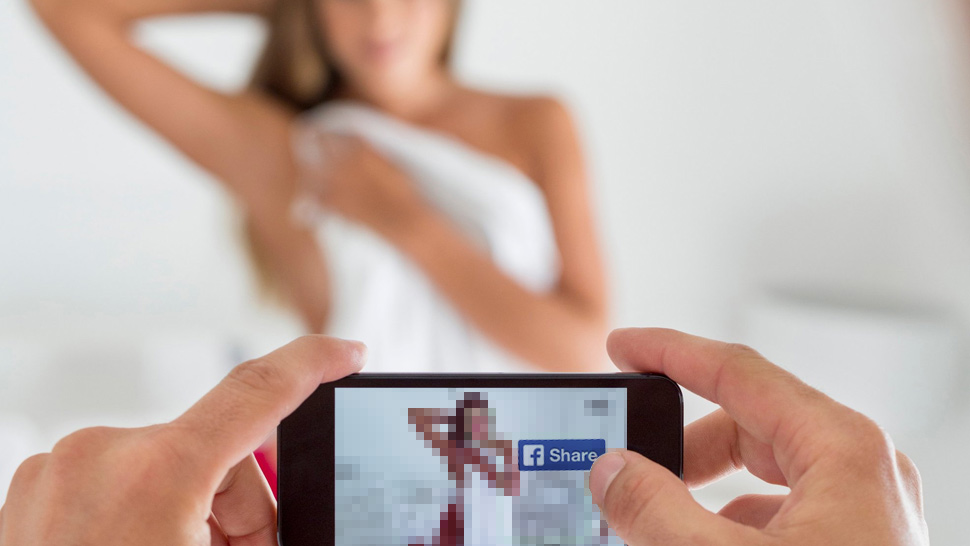Anti-Photo and Video Voyeurism Act of 2009
Since I became a lawyer, it was only just very recently that I came across with a criminal case involving Anti-Photo and Video Voyeurism Act of 2009. Yes, the law was enacted in 2009 but only a few cases were filed in court. This is Republic Act No. 9995 or otherwise known as the "Anti-Photo and Video Voyeurism Act of 2009."
 |
| Image grabbed from Esquire Philippines |
So, what this law is all about?
Before telling you about the law itself, Google has defined voyeurism as the practice of gaining sexual pleasure from watching others when they are naked or engaged in sexual activity.
The law has defined photo or video voyeurism as the act of taking or video coverage of a person or group of persons performing sexual act or any similar activity or of capturing an image of the private area of a person or persons without the latter's consent, under circumstances in which such person/s has/have a reasonable expectation of privacy, or the act of selling, copying, reproducing, broadcasting, sharing, showing or exhibiting the photo or video coverage or recordings of such sexual act or simial activity through VCD/DVD, interent, cellular phones and similar means or device without the written consent of the person/s involved, notwithstanding that consent to record or take photo or video coverage of same was given by such person/s.
What are the acts penalized by this law?
Accordingly, it is prohibited and declared unlawful for any person:
1. To take photo or video coverage of a person or group of persons performing sexual act or any similar activity or to capture an image of the private area of a person/s such as the naked or undergarment clad genitals, pubic area, buttocks or female breast without the consent of the person/s involved and under circumstances in which the person/s has/have a reasonable expectation of privacy.
2. To copy or reproduce, or to cause to be copied or reproduced, such photo or video or recording of sexual act or any similar activity with or without consideration.
3. To sell or distribute, or cause to be sold or distributed, such photo or video or recording of sexual act, whether it be the original copy or reproduction thereof.
4. To publish or broadcast, or cause to be published or broadcast, whether in print or broadcast media, or show or exhibit the photo or video coverage or recordings of such sexual act or any similar activity through VCD.DVD, internet, cellular phones and other similar means or device.
Note: The acts penalized in numbers 2, 3, and 4 shall apply notwithstanding that consent to record or take photo or video coverage of the same was given by such person/s.
What are the penalties provided by this law?
Any person found guilty of violating this law shall be penalized with the imprisonment of not less than three (3) years but nor more than seven (7) years and a fine of not less than One Hundred Thousand Pesos (P100,000.00) but nor more than Five Hundred Thousand (P500,000.00), or both, at the discretion of the court.
If the violator is a juridical person, its license or franchise shall be automatically be deemed revoked and the persons liable thereof including the editor and reported in the case of print media, and the station manager, editor and broadcaster in the case of a broadcast media.
If the offender is a public officer or employee, or a professional, he/she shall be administratively liable.
if the offender is an alien, he/she shall be subject to deportation proceedings after serving his/her sentence and payment of fines.
Is there an exemption provided by law?
Yes, it will not be unlawful for any peace officer, who is authorized by a written order of the court, to use the record or any copy thereof as evidence in any civil, criminal investigation or trial of the crime of photo or video voyeurism: Provided, That such written order shall only be issued or granted upon written application and the examination under oath or affirmation of the applicant and the witnesses he/she may produce, and upon showing that there are reasonable grounds to believe that photo or video voyeurism has been committed or is about to be committed, and that the evidence to be obtained is essential to the conviction of any person for, or to the solution or prevention of such, crime.
What are the requirements before a public officer may be exempt from this law?
1. There must be a written application to use the record or any copy thereof as evidence in any civil, criminal investigation or trial of the crime of photo or video voyeurism.
2. A written order issued by the court after examination under oath or affirmation of the applicant and the witnesses he/she may produce and upon showing that there are reasonable grounds to believe that photo or video voyeurism has been committed or is about to be committed, and the evidence is essential to the conviction of any person for, or to the solution of prevention of such, crime.
Note: Any record, photo or video, or copy thereof, obtained or secured by any person in violation of the section 6 of this law (for exemption of any criminal liability) shall NOT BE ADMISSIBLE in any judicial, quasi-judicial, legislative or administrative hearing or investigation.
Comments
Post a Comment